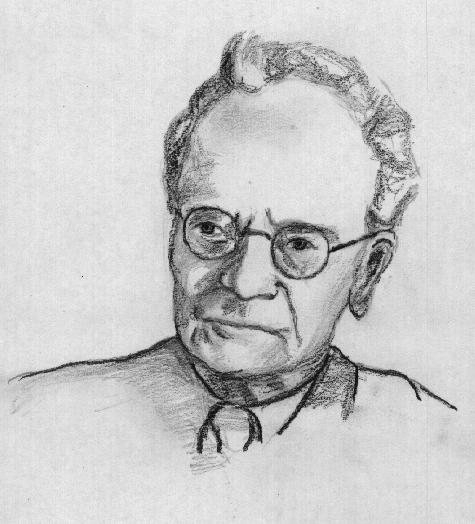Burrhus Frederic Skinner
(1904 - 1990)

"Education is what survives when what has been learnt has been forgotten."
Experimental psychologist Burrhus Frederic Skinner (1904-1990) was an outspoken behaviorist, and the inventor of the notorious Skinner box. Skinner developed the theory of "operant conditioning". Pavlovian "classical conditioning" explores how existing behavior, e.g. salivating for food, is shaped by associating the behaviour with a new stimulus, most famously bell-ringing. By contrast, Skinner's operant conditioning entails rewarding a "partial behavior" or an initially random act by the subject that approaches the desired behavior as defined by the experimenter. Successive punishments and rewards of such behavior can eventually lead to complex actions and sophiticated patterns of behavior. Behavior, of human and no-human animals alike, is explained without invoking such spooky unsientific notions as conscioness. To a large degree, the brain is treated as a black box". Beaviorist models of mind and behavior have been succeeded by the information theoretic paradign. Formal models of mind influenced by the root metaphor ofthe mind/brain a a digital computer
Skinner wrote the novel Walden 11 (1948) . Walden 11 is about a commune where the benign application of behaviorist principles has created a novel kind of utopia. Skinner summarised his life's work in Beyond Freedom and Dignity (1971). Skinner believed that both human and non-human behavioris essentially caused by external forces. Everything we do, and our identity as human beings, is shaped by the contingencies of punishment and reward, better known as pleasure and pain. Skninner's radical environmentalism contrasts with the genetic determinism of the eugeniicists. Skinner's attempt in Verbal Behavior(1957) to explain human language on behaviorist principles was demolished by Noam Chomsky. The rich generative syntax, productivity and systemeticity of human language cannot be explained by relexology.
In Brave New World, individuals are systemetically conditioned to think, feel, believe and the way the World State wants them to respond. The Hatchery and Conditioning Centre is then given an order for a certain number of individuals with particular characteristics, abilities, and beliefs. In the words of the Director: "All conditioning aims at that: making people like their unescapable social destiny."Since the destiny of any individual is shaped by the interplay of heredity and environmental factors, if these factors can be controlled, the individual is controllable too. And if an individual is conditioned to think, to act, and to react in a particular way to a particular stimulus, then free will has been abolished.
Rival forms of ignorance
pain, suffering, disease, filth, and old age still exist - in the Other Place
In 2002, the firsr ratbots
01 : 02 : 03 : 04 : 05 : 06 : 07 : 08 : 09 : 10

HOME
HedWeb
Future Opioids
BLTC Research
Huxley Hotlinks
cognitive-enhancers.com
The Good Drug Guide
The Hedonistic Imperative
Brave New World by Aldous Huxley
David Pearce
dave@bltc.com